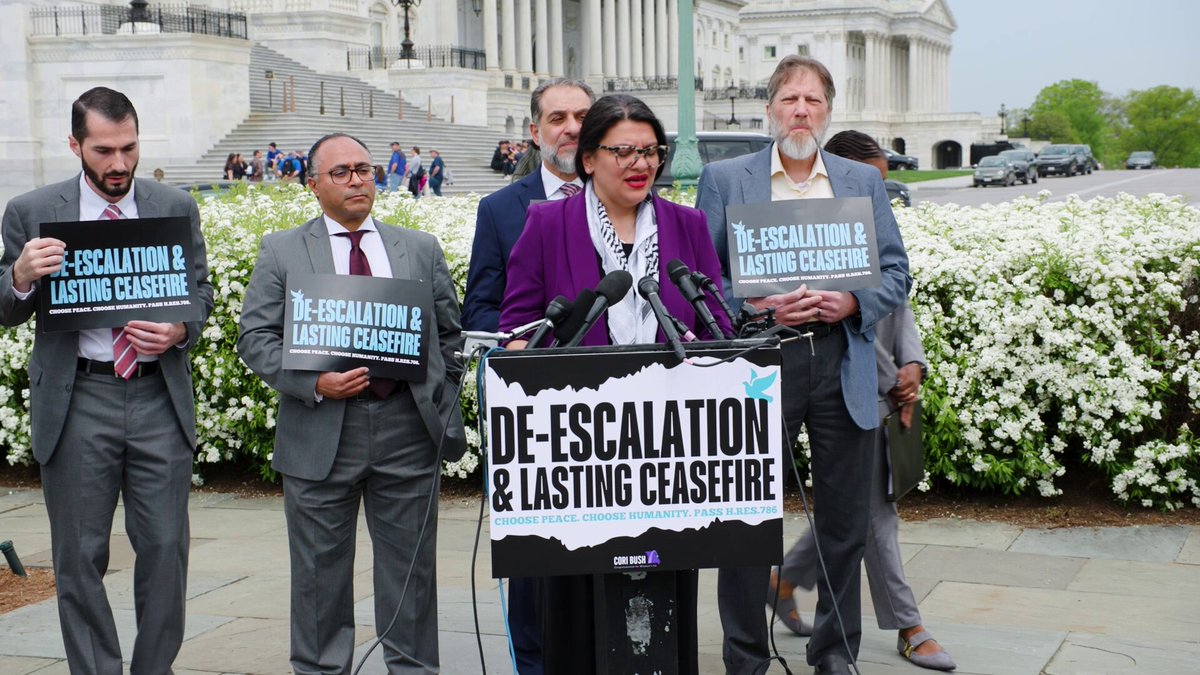The statement is a critical commentary on the actions of a country's government regarding its foreign policy and financial support, specifically addressing the issue of alleged genocide. The speaker accuses their country of being complicit and actively participating in these actions, and highlights a legislative decision to allocate a significant amount of tax dollars to support another country's leader, whom the speaker accuses of carrying out genocide. The image accompanying the statement shows a group of people, presumably activists or politicians, holding signs advocating for de-escalation and a lasting ceasefire, which visually supports the call for peace and cessation of violence mentioned in the statement.
- The statement aims to raise awareness and provoke action against what the speaker views as harmful policies, thus aligning with the principle of doing no harm with words and actions. [+1]Principle 1:I will strive to do no harm with my words and actions.
- The statement respects the dignity of those affected by the conflict by advocating for their protection and cessation of violence, supporting the principle of respecting the privacy and dignity of others. [+1]Principle 2:I will respect the privacy and dignity of others and will not engage in cyberbullying, harassment, or hate speech.
- The use of the term 'genocide' is a strong and serious accusation that requires substantial evidence and careful consideration. The statement could potentially polarize or oversimplify complex international relations, which might not fully promote understanding or compassion. [-1]Principle 3:I will use my words and actions to promote understanding, empathy, and compassion.
- The statement engages in a critical dialogue about a significant public issue, which is in line with the principle of engaging in constructive criticism and dialogue. [+1]Principle 4:I will engage in constructive criticism and dialogue with those in disagreement and will not engage in personal attacks or ad hominem arguments.
- The statement is direct and makes a bold claim without presenting evidence within the provided text, which could be seen as a failure to acknowledge and correct mistakes if the information is inaccurate or misleading. [-1]Principle 5:I will acknowledge and correct my mistakes.
- By addressing a public and international issue, the statement uses the speaker's platform to potentially influence public opinion and policy for the betterment of society, aligning with this principle. [+1]Principle 6:I will use my influence for the betterment of society.
- The statement uses free speech to address a matter of public concern, which is responsible and integral to democratic discourse. [+1]Principle 7:I will uphold the principles of free speech and use my platform responsibly and with integrity.
